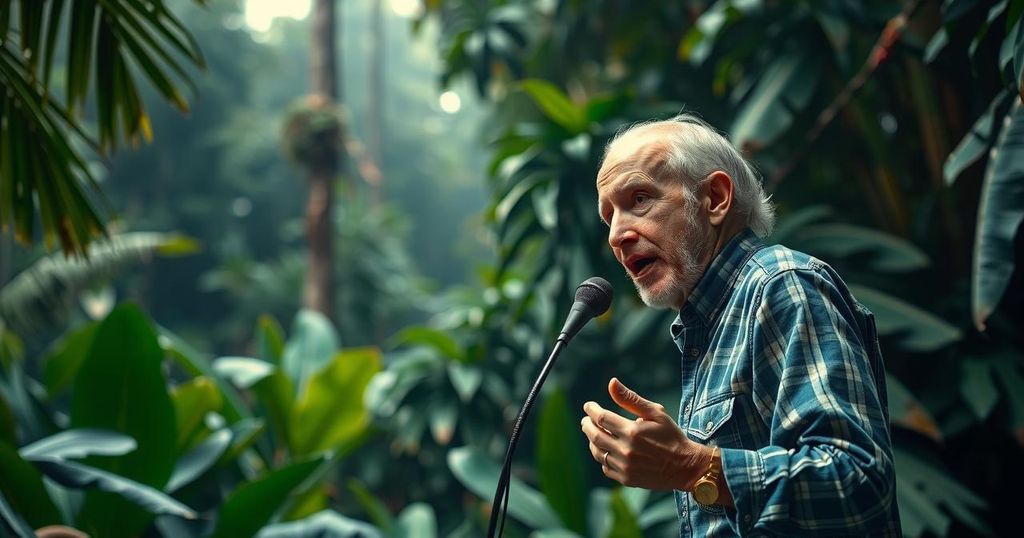President Joe Biden recently visited the Amazon rainforest, marking the first time a sitting U.S. president has done so. He emphasized the importance of clean energy progress in the U.S. and the urgency of addressing climate change. Biden announced significant financial commitments for the preservation of the Amazon and engaged with indigenous leaders. His visit takes place amid concerns about the environmental priorities of the incoming Trump administration, which might undo many efforts against climate change. Overall, the trip highlights both the challenges and opportunities in global environmental efforts.
Joe Biden made history by becoming the first sitting American president to visit the Amazon rainforest, where he emphasized the ongoing clean energy revolution taking place in the United States amidst significant climate challenges. Speaking in Manaus, Brazil, Biden acknowledged the substantial carbon stored in the Amazon and the accelerating environmental damage due to development. He reiterated that climate change action is a cornerstone of his presidency, insisting the momentum for clean energy is irreversible, regardless of the incoming administration’s stance. During his visit, which coincided with the U.N. climate conference, Biden toured the affected areas, observed the ecological impact of drought, and met with indigenous leaders. He highlighted the U.S. commitment to international climate financing, announcing measures to increase support for global climate initiatives significantly. Biden’s administration has pledged $500 million to the Amazon Fund and aims to spur $10 billion in public and private investments for restoration efforts. Biden’s remarks were underscored by caution about the future direction of U.S. environmental policy, with the anticipated administration of Donald Trump poised to reverse many climate initiatives. He expressed optimism that the benefits of clean energy are being felt across political lines. Despite the historical context of his visit and his administration’s planned investments, experts expressed skepticism regarding the efficacy of U.S. commitments under a possible Trump presidency. Biden’s trip, framed as a demonstration of his administration’s environmental priorities, also served to highlight the challenges faced by the Amazon, such as deforestation pressures and climate-induced drought. While Brazilian President Lula has made strides in reducing deforestation, the region continues to face threats from infrastructure projects aimed at agribusiness expansion. Despite these challenges, Biden’s commitment to protecting the Amazon signals a broader concern for global climate preservation, urging nations to join together against degradation threats.
The Amazon rainforest, often referred to as the “lungs of the world,” is a critical ecosystem that plays a key role in regulating the Earth’s climate by absorbing carbon dioxide. However, rapid development and poor environmental policies have led to increased deforestation, which not only threatens biodiversity but also poses a catastrophic risk to global climate stability. President Biden’s visit aimed to reinforce the United States’ commitment to combating climate change through the promotion of clean energy initiatives. However, with the incoming Trump administration likely to prioritize economic development over ecological preservation, the continuity of these efforts remains uncertain. This visit coincided with key international climate discussions, drawing attention to the need for collaborative global action as the effects of climate change become increasingly pronounced.
In conclusion, President Biden’s visit to the Amazon rainforest underscores his administration’s unwavering commitment to advancing clean energy and addressing climate change. Despite the potential policy reversals expected with the transition to a Republican administration, Biden’s emphasis on the resilience of the clean energy movement reflects a belief in its inevitability. The visit sheds light on urgent environmental issues and the necessity for sustained international cooperation, highlighting both the progress made and the challenges that lie ahead in protecting vital ecosystems like the Amazon.
Original Source: www.detroitnews.com






